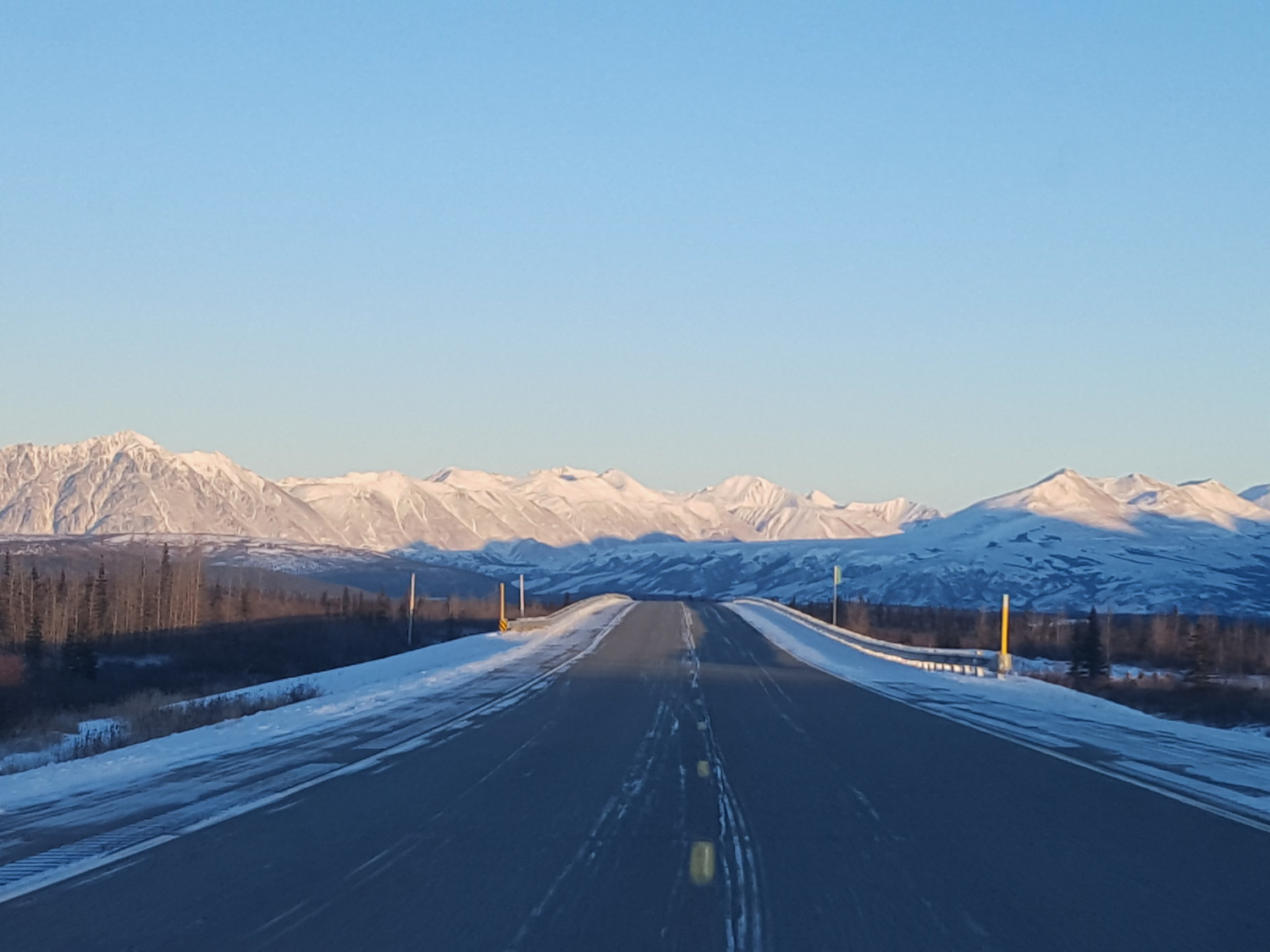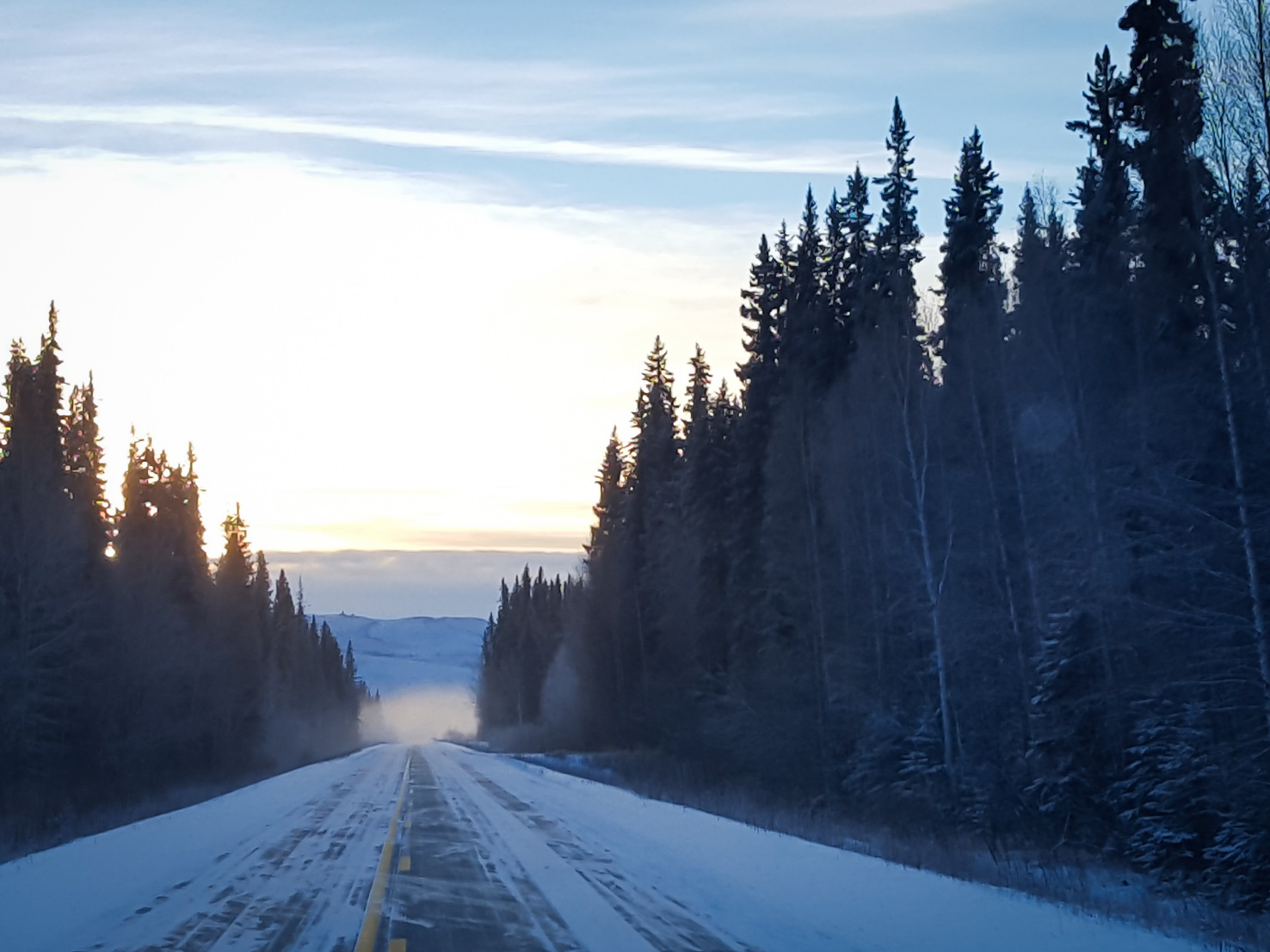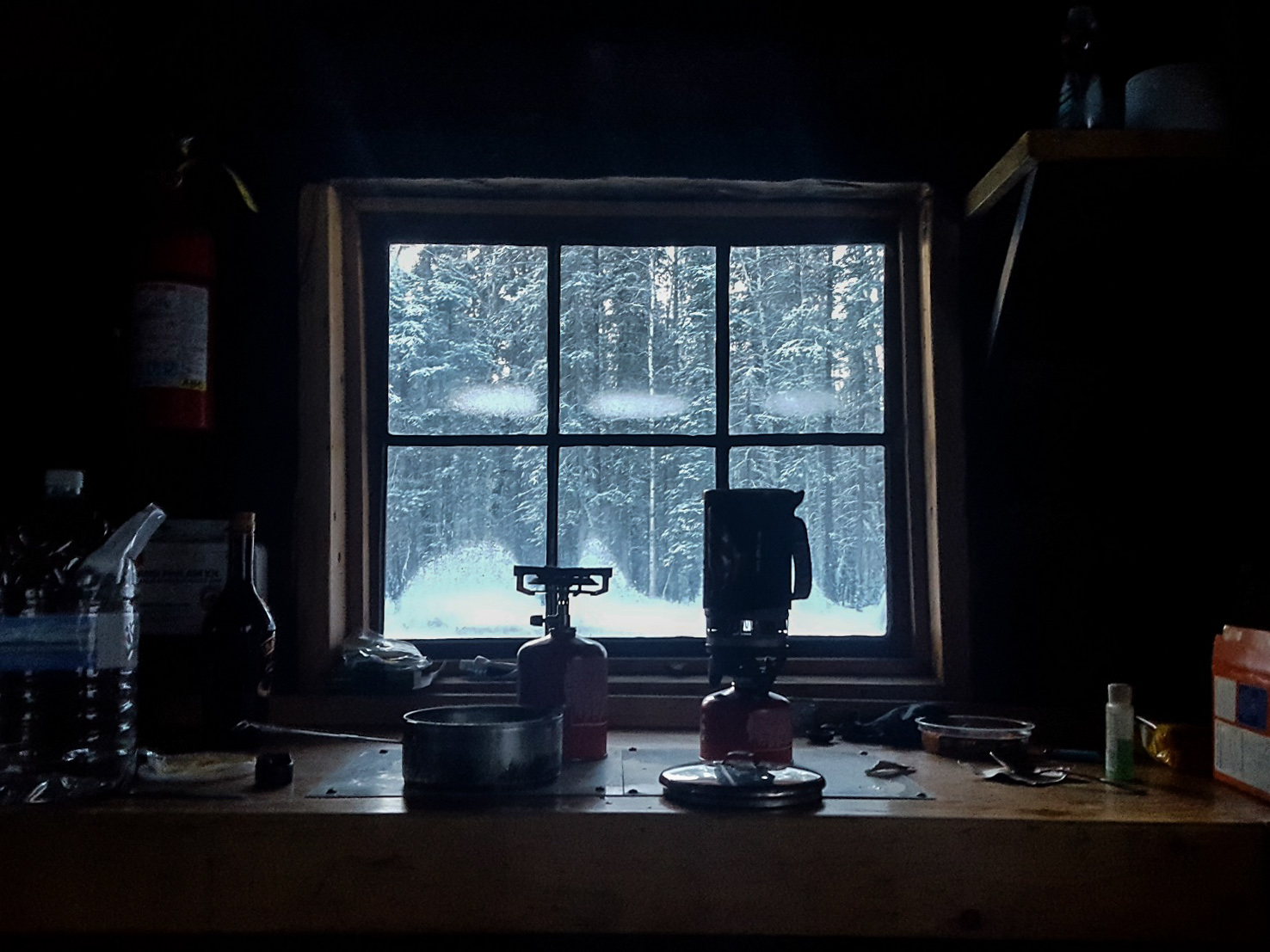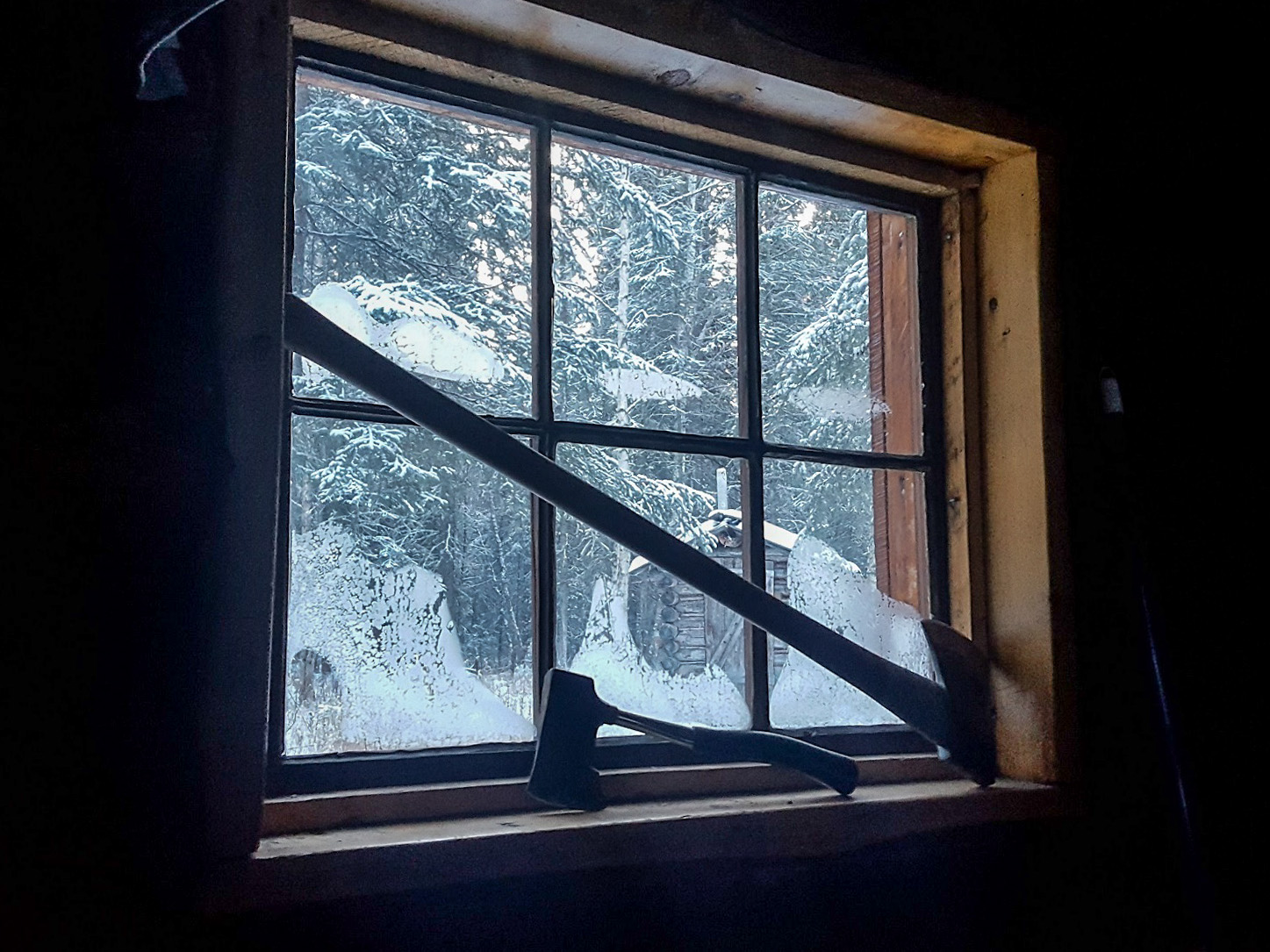Road Trip in a Red State

Road Trip in a Red State
By Mary Ann Thomas
Last November, in a red state surrounded by people who voted for Trump, I silently grieved for my country. My body was brown, deflated, minimized, isolated, invisible, hypervisible, and hiding from what cannot be changed. I felt like a fire dumped with water, unable to fathom what was happening, or if the future I’d imagined was snuffed out for good. I avoided difficult conversations, I dodged white people.
In a red state surrounded by people who voted for Trump, one week after the election, I met Nang. Nang was a Vietnamese-Chinese-Kid-from-SoCal, who seemed funny and sarcastic and thoughtful. In his facial expressions, I read indecision and sometimes, a jaded negativity. In his actions, I read eagerness, a desire for human connection. We met at a poetry reading, both of us invited by a mutual friend. After the poetry, we went to the bar and compared schedules. Our phone calendars revealed we both had the week after Thanksgiving off.
So, in a red state surrounded by people who voted for Trump, I latched on to Nang, the new traveler in town, and we decided to take a trip. A road trip. A drive up the Parks Highway past Fairbanks, up the Chena Hot Springs Road, where we could post up in a dry cabin along the road for a few days in extremely cold weather and drive to the hot springs during the day. Maybe we’d even go on a hike.

I sent a few friends our itinerary in case Nang ended up being a serial killer, or my car ended up skidding off the road into a frozen ditch. For hundreds of miles, we drove. A thin layer of ice covered the highway and I focused on staying on tracks blazed by cars before us to keep us humming forward in motion. Nang told me about where he’d lived before – most recently, Hawai’i, the Big Island. He’d never been through winter in his life, he’d never seen snow actively fall. He was blowing his savings on winter gear because this Alaska shit was no joke. Somewhere on the Parks Highway he took control of the music and raised the volume: N’Sync, Backstreet Boys, Janet Jackson – full albums. Over the sound of the 90s with visibility low, we sang and grooved, let loose. No one was trying to be cool, and I found intimacy with this stranger, this new friend, on this Alaskan road.
Somewhere on the Parks Highway… we sang and grooved, let loose. No one was trying to be cool, and I found intimacy with this stranger, this new friend, on this Alaskan road. As the car cruised north, Nang and I became a we.
As the car cruised north, Nang and I became a we. We watched the temperature gauge dip and frost form on the inside of the windows, even with the heat blasting as high as it could go. We kept our jackets and hats on and yelled over the music,”Oh shit! -10!” We reached for snacks and drinks around the eight bundles of wood we’d brought, anticipating the dry cabin wouldn’t have any, or if it did, we would need as much as we could get.
We got to our cabin around eight. We opened the gate with a code the Parks department had emailed us and made fresh tracks on the snow-covered road. I parked the car. We ran into the cabin and in that 15 seconds of true cold, I learned that any unprotected skin becomes instantly numb at -30 degrees, the hair inside nostrils freezes within seconds, and the condensation of breath against a scarf turns to ice. There was at least as much wood as we’d brought already inside, but the cabin sat at a cozy 32.

Cabin “kitchen”
We made dinner and hot drinks quick, anything to get our blood circulating, and lit the woodstove trying to bring the cabin above freezing. Nang set out his sleeping bag (borrowed from me) and winter sleeping pad (newly purchased for this trip) at the far end of the plywood sleeping platform, away from the wood stove, to keep all the intentions of the trip clear. I set mine on the other side near the fire and the invisible signs aligned: We’re gonna be friends. Real good friends. Let’s not mix anything else up in this.
Nang set out his sleeping bag at the far end of the plywood sleeping platform. I set mine on the other side near the fire and the invisible signs aligned: We’re gonna be friends. Real good friends.
Then, we ran off to dunk ourselves into 110 degree hot springs. Ice crystals formed from the springs’ billowing steam, clinging on any vertical structure, building white glowing sculptures in the night. They sculpted our faces too, freezing snow onto our hair. A little touch here or there made hair stand vertically, gave Nang frosty tips onto his jet-black strands pointed up. Our faces became art, but our ears could barely take it. Those thin bands of cartilage had to stay out of water for our hair to freeze just right. We dunked our heads and the threat of frostbite disappeared. The hot water regenerated us, and it seemed impossible that our bodies could be so simultaneously hot and cold.
When we got to our home, the sanctuary cabin on a -30 degree night, we filled the wood stove as much as we could. We stacked a pile of logs next to it for midnight refills, and did the math: there wouldn’t be enough wood to last the whole day and night coming. We would have to chop wood.

Frosted windows and woodcutting tools
The next day when the sun barely rose over the horizon at eleven am, we crawled out of our sleeping bags with stiff necks and muscles sore from being curled in a fetal position on a plywood bed. The insides of the windows were covered in a sheet of ice. We filled the wood stove again, ate breakfast, and assessed our tools: a decent axe with some heft, and a three-foot saw. We blasted music as we pulled on wool layers, puffy jackets, winter coats, hats and hoods, feet in boots, and snow pants zipped tight.
That day, we didn’t hike. We went back to the hot spring and soaked our tired shoulders. We looked for shooting stars and northern lights, and we exhaled.
Then our true work began. We trudged through a foot of snow and combed through forest debris. We yanked piles of downed sticks for kindling and dragged them to our porch where we kicked and yanked to get rid of snow. We took turns with the axe and saw, picking our weapon for size and position. Nang found an entire downed tree, eight to ten inches in diameter throughout. He worked away at it, stripped off layers until he was wearing just wool and puffy, and chopped that tree into sections that could be devoured by our oversized stove. I worked on a smaller project, a standing dead tree close to the cabin, one that I would spend all afternoon getting a single log from. I took breaks and hustled the logs he cut into the cabin, feeding the fire and warming frozen wood. I admired the kid from SoCal who chopped up a tree in -30 degrees, who broke a sweat on his first trip into an unfamiliar Alaskan winter, working with just an axe and persistence.
That day, we didn’t hike. We went back to the hot spring and soaked our tired shoulders. We looked for shooting stars and northern lights, and we exhaled. We had just enough firewood for the night and morning, just enough to get by until our trip home.

In a red state surrounded by people who voted for Trump, only a few weeks after the election, my brown body found itself in a hot spring, staying at a dry cabin, with the Vietnamese-Chinese-Kid-from-SoCal. We’d worked all day, and now we were sure. We’d survive.
Mary Ann Thomas is a New Jersey-born-and-raised queer South Asian traveler. She writes about her adventures as a travel professional and long-distance bike tourist. See more of her writing on Postcards from MAT, and find her on Instagram and Facebook.
Be the first to comment